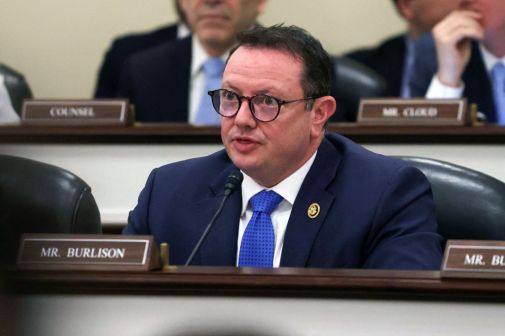Bill to modernize federal cloud procurement gets backing of leading trade group

A top technology trade group is nudging the leadership of the Senate Homeland Security and Governmental Affairs and the House Oversight and Accountability committees to advance a bill aimed at modernizing the federal procurement process.
In a letter sent Monday to Sens. Gary Peters, D-Mich., and Rand Paul, R-Ky., and Reps. James Comer, R-Ky., and Jamie Raskin, D-Md., the Alliance for Digital Innovation threw its support behind the Federal Improvement in Technology Procurement Act (H.R. 9595), touting legislation that it said would remove “outdated barriers that prevent agencies from accessing the latest commercial cloud-based technologies from companies of all sizes.”
The FIT Procurement Act, introduced last month by Rep. Eric Burlison, R-Mo., would help agencies better “meet the increasing demands of a digital-first world,” the letter stated.
“In today’s rapidly evolving landscape, the federal government’s ability to efficiently procure emerging technologies is paramount to maintaining operational agility, improving public services, and safeguarding national security,” the letter continued. “H.R. 9595, if passed, will facilitate a competitive, flexible procurement environment that encourages innovation, reduces acquisition delays, and creates new opportunities for businesses to enter the federal contracting space.”
The Alliance for Digital Innovation — which counts Amazon Web Services, Crowdstrike, Google Cloud, Okta, Palantir, Salesforce and Trellix among its members — is backing the House version of the FIT Procurement Act in addition to a Senate bill of the same name from Peters and Sen. Ted Cruz, R-Texas.
Though the bills are largely similar, the House legislation includes a provision that the Alliance for Digital Innovation “strongly supports” that is not in the Senate version: a proposal to increase the micro-purchase threshold (MPT) made available to agencies “to rapidly acquire low-cost technical solutions.”
Raising that threshold from $10,000 to $25,000 “will position federal agencies to build upon this governmental tool, with greater flexibility to leverage necessary solutions which enhance efficiency and productivity,” the letter states. “Further, the MPT not only empowers the federal government to move with agility to embrace modern technology, but it also incentivizes agencies to engage and build rapport with smaller startups and businesses who can compete and demonstrate performance in a rapidly growing and competitive market.”
The Alliance for Digital Innovation similarly supports a threshold boost called for in both the House and Senate bills: bumping the simplified acquisition limit from $250,000 to $500,000, which it says “will encourage and enable additional non-traditional small and mid-sized businesses to compete for federal contracts.”
“As the costs of products and services have steadily risen, the current threshold has become increasingly restrictive, limiting federal agencies’ ability to procure the tools and technologies needed to fulfill their missions,” the letter states. “Coupled with an increase to the MPT, modernizing the SAT threshold will ensure that large companies and startups alike, are able to climb the acquisition ladder from small-value, experimental acquisitions all the way to larger contracts.”
Finally, the Alliance for Digital Innovation is in favor of the FIT Procurement Act’s measure to enable subscription-based pricing via the authorization of additional exceptions to advanced payments. The trade group said such protections would “ensure the government receives a product or service prior to payment,” countering the current approach involving subscription “as-a-service” models they call “inefficient.”
“This provision in the legislation would be foundational to unlocking the value proposition of cloud-based products and services by moving towards a true consumption-based pricing across government,” the letter states. “Furthermore, this provision will help U.S. federal government agencies continue to have access to the latest commercial cloudbased technologies, ensuring efficiency and cost effectiveness.”
Correction: Though the letter is entirely about the ADI’s support for the House version of the FIT Procurement Act, a spokesperson said that the trade group also supports the Senate bill and “will continue to work with both the House and Senate to encourage passage of the legislation and the inclusion of the micro-purchase threshold increase among the other provisions in the final bill.”






